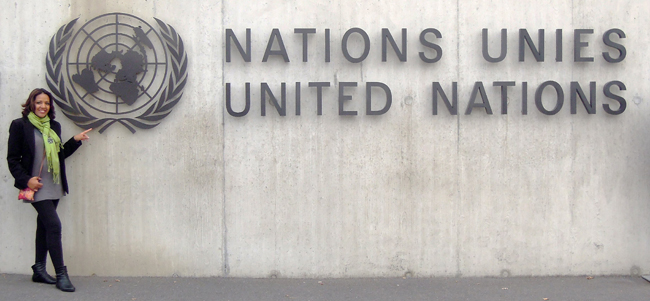The clock is ticking for Windows 10 users. With Microsoft’s official End of Support (EOS) deadline looming in October 2025, South Africans are being…
SA director wins digital innovation prize for mobile concept
Hajira Cassim, a trainee South African director was announced as one of the winners in the Not-For-Profit Digital Innovators Award category at ITU Telecom World 2011. Cassim was a winner out of 45 finalists from 22 countries around the world.
Held in Geneva, Switzerland, Telecom World is one of the globe’s most important events, brought together by The United Nations’ International Telecommunication Union (ITU).
Cassim won the award for pitching the mobile-content-generation showmemobi model to an international investment panel, global leaders in technology, and an international audience via the internet.
Cassim is part of the Film Industry Learner Mentorship (F.I.L.M.) MICT Seta Sallywood Project.
F.I.L.M claims that it is “dedicated to transforming and enriching the South African film industry by fast-tracking people with experience — primarily from previously disadvantaged backgrounds — into management positions through hands-on skills development and mentorship on local and international feature and commercial productions”.
showmemobi is the Sallywood Project’s mobile content channel on Bozza, a mobile application which enables communities to tell their “stories from the inside out”.
Five-minute mobisodes of edutainment are written and produced by trainees on the Sallywood Project, a MICT SETA-funded skills programme created by F.I.L.M. to empower young media entrepreneurs.
“Our showmemobi pitch fortuitously captured the essence of the entire conference, that captivating content essentially drives the uptake of technology as the channel attracts more and more users,” says Hajra, a former Bandwidth Barn graduate.
“I love ICT and I love making movies, so it’s the perfect way to marry my passions.”
Illustrating how much the project means to her, Cassim points to the fact that South Africa’s unemployment rate sits at around 50%.
“Six months ago, I was part of that statistic,” she says. “Through showmemobi, we want to empower people who are marginalised to tell and sell stories through film electronic and digital media; stories that touch and transform lives and in the process, create employment for emerging micro-entrepreneurs who generate the content.”
According to Cassim, the decision to produce the series for mobile was a relatively obvious one, particularly given the emerging market audience it was targeting.
“Mobile jumps the traditional barriers to entry and allows us to make films, reach an audience and interact with them in an ongoing way via mobile,” says Cassim.
Highlighting the relative ease of entry provided by mobile, she adds that “It would take me forever to direct a feature, but now in six months I can direct my own mobile series.”
Cassim is particularly inspired by Nigeria’s US$2-billion a year Nollywood film industry, especially the manner in which it adapts to localised settings and vernacular.
“We have 11 official languages in South Africa,” says Cassim. “I’m Indian, so mobile allows me to make films in Hindu or Urdu, which — depending on your content — can be hyper-localised and very niche, or totally generic.”
Cassim is currently developing her first series for showmemobi, which she plans to shoot on her new BlackBerry. The award comprised Swiss Francs 8 500 (ZAR75 000)
According to F.I.L.M project director, Seton Bailey, the prize money will be used to to buy production equipment for both the project and showemobi.
He adds that his and Cassim’s experiences in Genevea gave them “a far clearer understanding of how to pitch the huge benefits of our not-for-profit showmemobi mobile-content-generation project to venture capitalists, angel investors and the world”.


